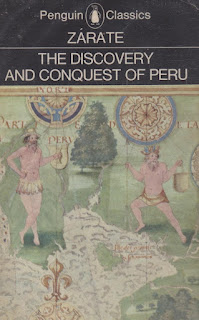The year is 1993. It was the holidays after my twelfth standard exams. I was going to the entrance coaching classes. And I got hold of an old copy of the entire collection of Shakespeare. Though I've read the stories and some sonnets, it was all done without interest and the size of the collection terrified me.
Then I started with the comedies. The language was difficult and the annotations for most of the passages was not there as well. So it was a struggle to read through. I persevered because I loved good stories. And slowly the magic of words and the Shakespearean world started its enchantment. It was a world filled with fools, princes, paupers and princesses. It was a world I love even today.
Viola, one of the heroines of 'Twelfth night' was a favorite at first. She is feisty, cunning, fumbles her way around and with the advantage of hindsight, I think I loved the name more than the character that inhabited it. So it was Viola for a while.
After the comedies, I moved on to the histories. Most I could only understand the stories without understanding the background of it. But it left with a never ending fascination with Ceasar and his exploits (which made me a huge fan of the Colleen Mccullough's "First man in Rome' series in later days).
Only when I started on the tragedies, did I realize the power of Shakespearean writing. 'Hamlet' made an everlasting impression. It is difficult to express but I remember reading it again and again hoping against hope that somehow the story might change to have a happy ending.
More than the tragedy of Hamlet, it was Ophelia who broke my heart. Relatively speaking, she has only a minor part and most of it happens after she becomes mad. The innocence of her character is what drew me in.
She is probably in her teens and loves Hamlet. He spurns her but he too loves her. Hamlet and Laertus, who is Ophelia's elder brother are good friends. Due to his madness at his father's killing and his mother's hand in it, Hamlet kills Polonius, Ophelia's father. Thus Ophelia finds herself in an impossible position.
She cannot marry her father's killer, whom her brother has planned to kill. It drives her mad, or is she already mad singing songs around the castle. It is difficult to understand. She never protests and conflicts herself with her love for Laertus and Hamlet. She wanders around and drowns in a brook and dies. On her funeral, Hamlet confesses his love for her and sets the stage for the climax with an argument with Laertus.
The vulnerability of her character and the impossibility of her situation puts her in a place difficult than what Hamlet finds himself in. Ophelia could not break the heart of her brother whom she loves and cannot let go off Hamlet and ends up going mad.
It was the scene of her death that's heart-breaking. It is so tragic she sings even when she is drowning without realizing that she is drowning. It is difficult not to visualize the scene when reading it and the visual it brings up is certain to haunt one for many year, like it has been haunting me all these years.
The death of one so young, so full of love, so much torn by events not in her control and one who goes mad and drowns herself in a brook not unlike a muddy pool of water conjures up an imagery of such tragic proportions, when I read the lines even now, it is difficult not to feel the sadness of life itself.
"There is a willow grows aslant a brook,
That shows his hoar leaves in the glassy stream;
Therewith fantastic garlands did she make
Of crow-flowers, nettles, daisies, and long purples
That liberal shepherds give a grosser name,
But our cold maids do dead men's fingers call them:
There, on the pendent boughs her coronet weeds
Clambering to hang, an envious sliver broke;
When down her weedy trophies and herself
Fell in the weeping brook. Her clothes spread wide;
And, mermaid-like, awhile they bore her up:
Which time she chanted snatches of old lauds;
As one incapable of her own distress,
Or like a creature native and indued
Unto that element: but long it could not be
Till that her garments, heavy with their drink,
Pull'd the poor wretch from her melodious lay
To muddy death. "
That shows his hoar leaves in the glassy stream;
Therewith fantastic garlands did she make
Of crow-flowers, nettles, daisies, and long purples
That liberal shepherds give a grosser name,
But our cold maids do dead men's fingers call them:
There, on the pendent boughs her coronet weeds
Clambering to hang, an envious sliver broke;
When down her weedy trophies and herself
Fell in the weeping brook. Her clothes spread wide;
And, mermaid-like, awhile they bore her up:
Which time she chanted snatches of old lauds;
As one incapable of her own distress,
Or like a creature native and indued
Unto that element: but long it could not be
Till that her garments, heavy with their drink,
Pull'd the poor wretch from her melodious lay
To muddy death. "


No comments:
Post a Comment